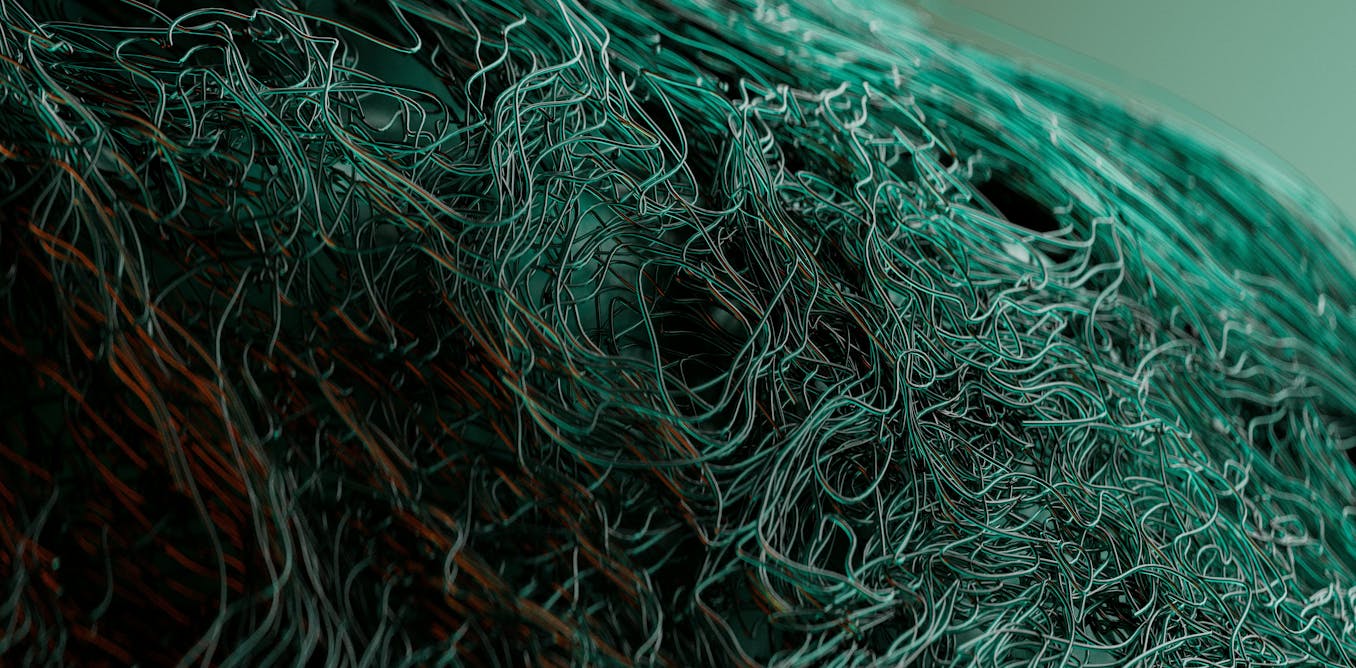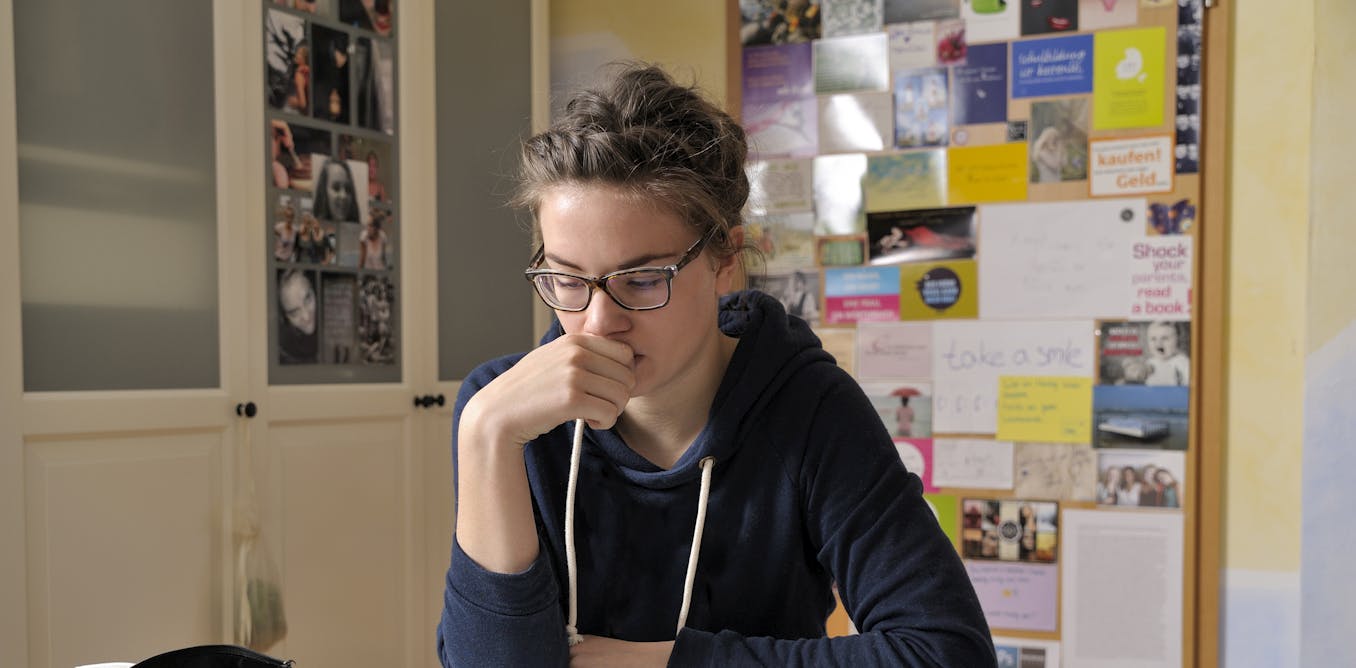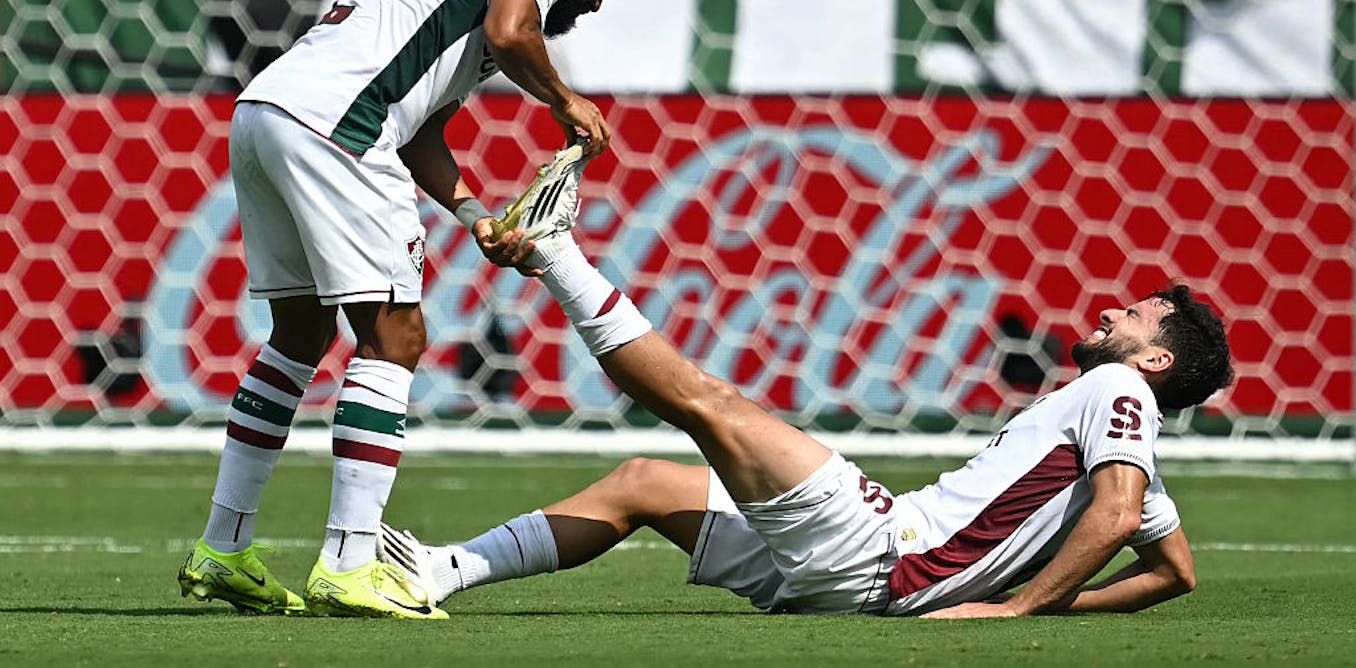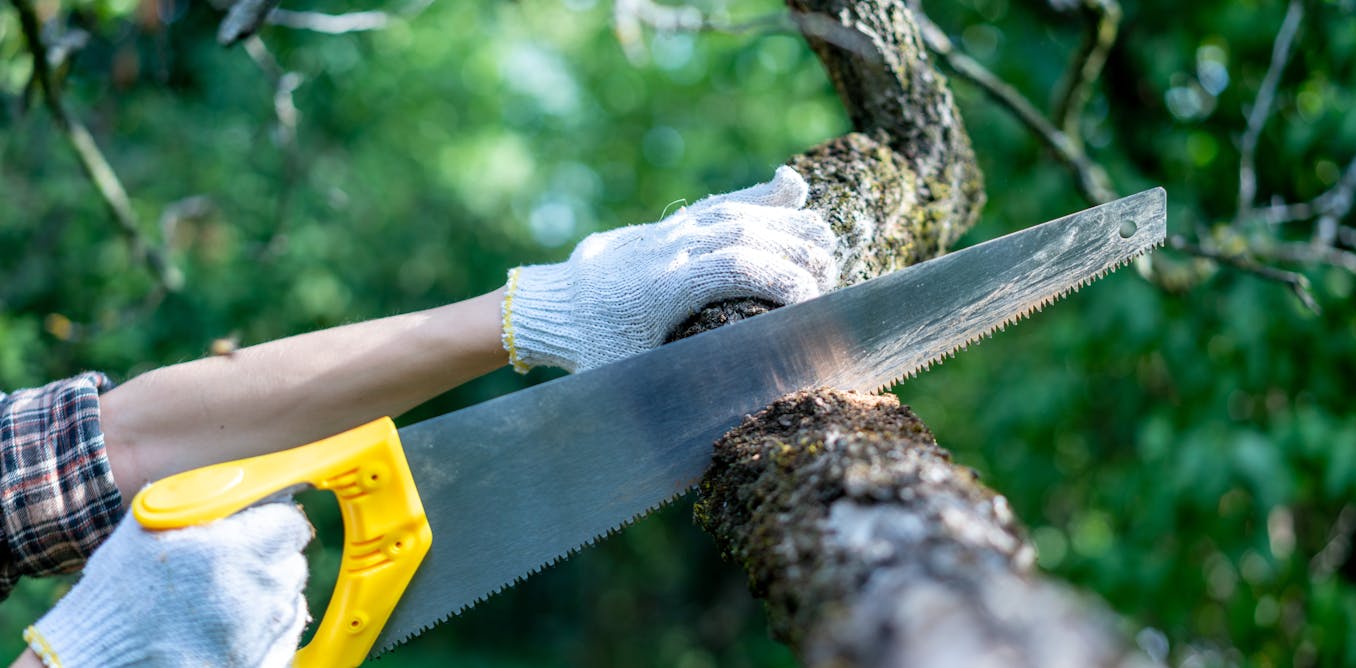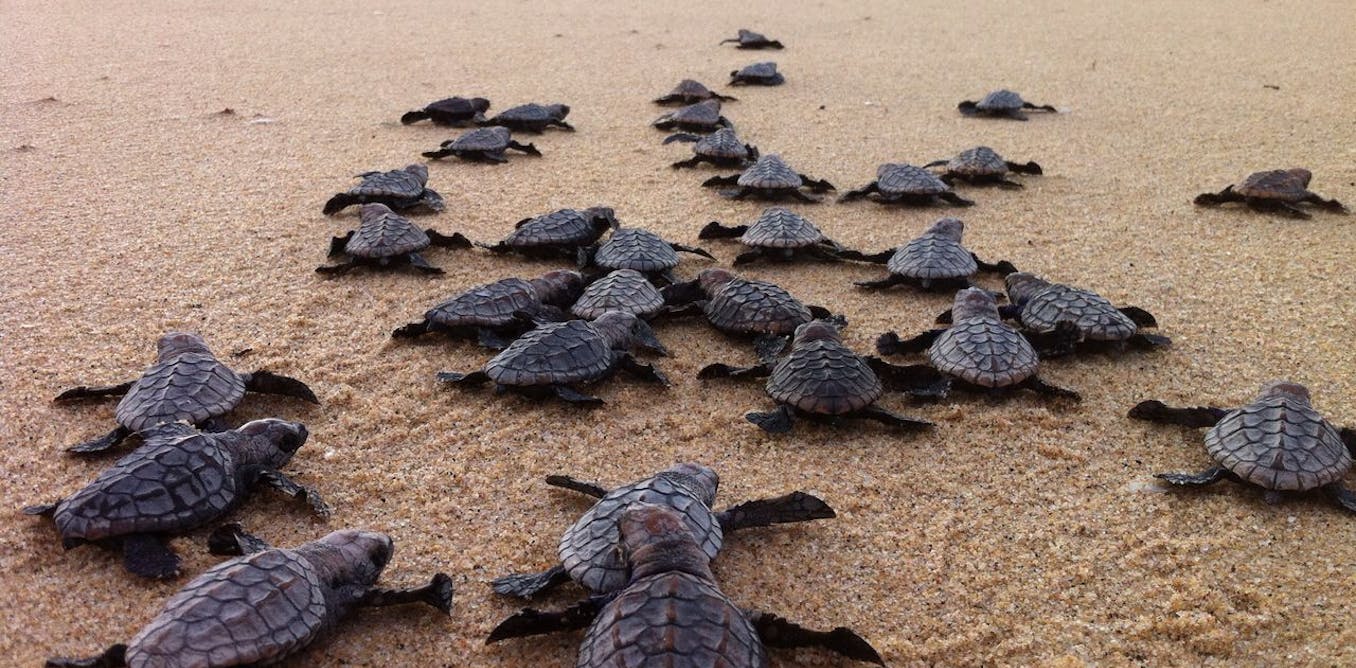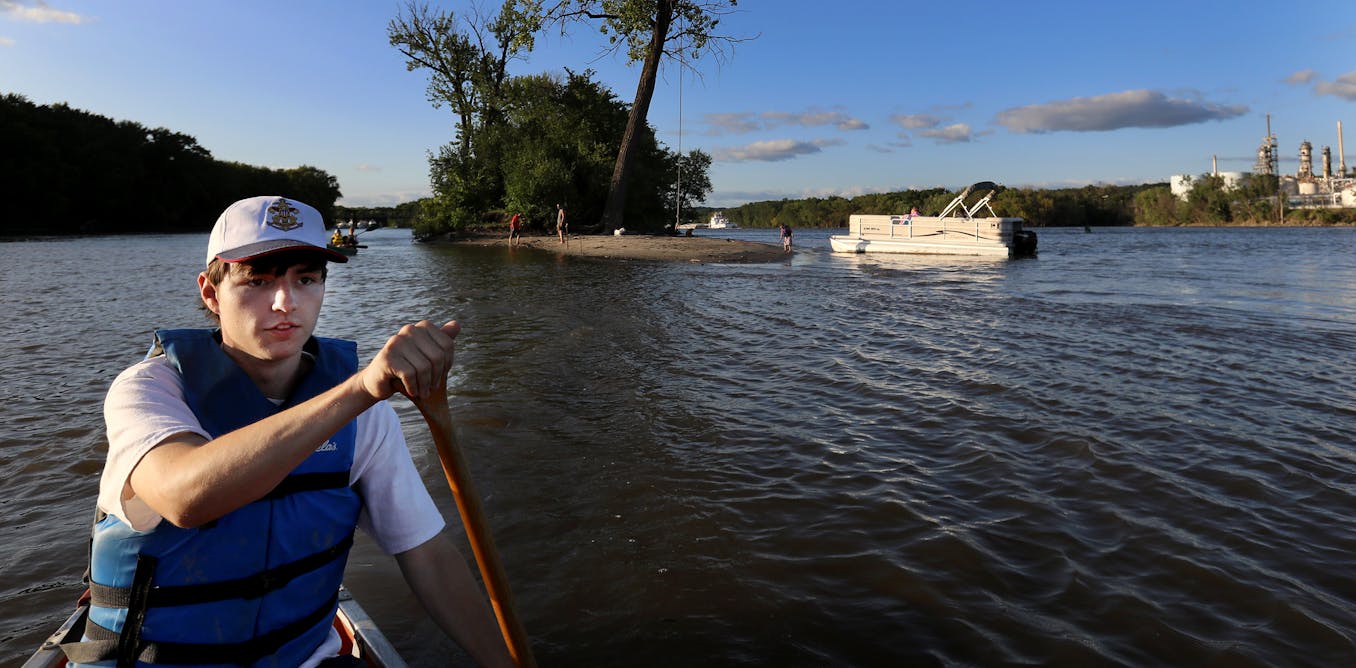Run Cheetah Run (Full Episode) | Secrets of the Zoo
NARRATOR: The episode “Run Cheetah Run” from Secrets of the Zoo follows the heartwarming and sometimes harrowing tales of the dedicated staff at the Columbus Zoo as they care for a variety of animals. The episode features the story of Emmett, a cheetah who has overcome numerous health challenges and must undergo a critical surgery to replace his shoulder joint. Meanwhile, the rescue and rehabilitation of 16 macaws from a hoarding situation is also highlighted, as the birds receive much-needed care and attention at the zoo. Additionally, viewers will witness the unique bond between zookeeper Joy and the flamingo Haleakala, as they work together for her hydrotherapy sessions. This episode provides a glimpse into the challenges and triumphs of caring for the 10,000 animals under the watchful eye of the zoo’s dedicated staff. Full of heartwarming moments and incredible wildlife stories, “Run Cheetah Run” offers a captivating and emotional look at the world of animal conservation and care.
Watch the video by Nat Geo WILD
JOY: Oh, my goodness! You are crazy! ZACK: Argh! NARRATOR: Next on Secrets of the Zoo… SUZI: Oooh! Oooh! NARRATOR: Doctors rush to save a cheetah… SUZI: Ready? PRIYA: Easy, my love. SUZI: You’re my baby boy. NARRATOR: Rescued macaws get a new life at the zoo. (bird moaning) DAVID: There she is.
SUZI: There’s your new bird, David. DAVID: Yeah. CARRIE: Ooooh! DEVON: Good job! Yay! NARRATOR: And polar bear cubs go off the deep end. 10,000 animals. Two locations. 150 caregivers. This is Secrets of the Zoo. EMILY: Here she comes! Incoming! Woo! So we have two of our three baby cheetahs here in the watering hole. These girls are four months old. We get them out here as often as possible just to get those muscles ready to run.
So we have our yellow Labs, we raise our Labs with the cheetahs. They’re kind of like a security blanket, I would say. It’s a sibling that has more confidence. So if one of our cats is just a little bit nervous, the dog kind of walks first and that cat will follow him.
And they love running maybe a little bit more than the cheetahs do. SUZI: Perfect. That’s perfect. That’s perfect. Are you a good boy? PRIYA: Are you ready to bring him? SUZI: It’s alright, buddy. PRIYA: We have two minutes. Yes, two and a half minutes to leave. SUZI: Come on, Emmett. We need to go. You’re stalling. He knows. Come on, come on!
NARRATOR: Emmett, a nine-month-old cheetah is a fighter, overcoming the odds since a baby, hand-raised by the zoo staff. SUZI: Emmett was a very compromised cat when we got him. He was about two weeks old, he was full of pneumonia, Bordetella, feline herpes; he was just about dead.
None of the other cats survived in the litter. Here’s your buddies! Oh, they’re all here! You guys, wish him luck. But unfortunately, as he grew bigger, we noticed his shoulder never fully developed. NARRATOR: Emmett’s joint is missing bone and cartilage. Untreated, Emmett’s shoulder may restrict him to a painful life without running. SUZI: Are you going with him?
Are you going to be his little buddy? You are his rock. You’re not going. You have to stay, I know. So we’re on our way to Ohio State, and he will have surgery. PRIYA: Alright, let’s go! SUZI: I have had two cheetahs here that I put my heart and soul in,
And he’s one of them. It’s nerve-racking. I mean, he’s got a big part of my heart. (sighs) Valium for me. PRIYA: I have six bottles. So you’re in good shape. SUZI: Thank you. JOY: Hi, Kitty! How are you, darling? So that’s my daughter. (squawking) And you can hear her calling me. What are you doing? Hi! Yeah, I know. I’m gonna come see you. I have a flamingo daughter named Haleakala. And she likes to greet me every time I go into the flamingo yard. Haleakala!
Where’s that bird? Where’s that girl? Come here, little lady! I want a hug. She in particular will yell at me and then charge on over. Oh, my goodness! You’re crazy. And she runs right into me and then does a happy dance. Are you happy I came to see you? Yay! She pulls at my heartstrings. So that’s not a relationship that happens every day, and we really cherish the ones that we do have like that. Our relationship started back when she was in the egg. We help raise our flamingos, and they hear our voice in the egg as they’re hatching,
And sometimes the flamingos will imprint on particular people. You never stop talking. (squawking) You never stop talking, do you? And this one in particular has a personality or flamingo-ality that is very rambunctious. (squawking) Thank you, buddy. There’s a flamingo hairstyle. They might be hairdressers if they had professions as humans.
It’s not always the best hairstyle that you get at the end, but they seem to enjoy it. Oof, ha ha, alright, let me see your feet. Several of them do have leg tapings. And this is because their growth plates when they’re growing are sometimes not even.
In the wild, they would be less likely to survive a long life. Check those wings. NARRATOR: Haleakala will be heading to the pool to begin hydrotherapy sessions, so her leg condition doesn’t worsen. JOY: We’re working with them getting them up and moving,
And one of the best ways is hydrotherapy, or just moving around in water and kind of stimulate the body to correct itself. NARRATOR: Joy will prep the pool for Haleakala’s hydrotherapy later today. JOY: I got to go. You got to be a bird, okay?
I’m going to see you later. Love you! Okay, stay, stay, okay. (squawking) I got to go. I got to go. (squawking) I’m sorry! NARRATOR: 16 macaws rescued from a hoarding situation in Alabama will soon arrive at the Columbus Zoo. WOUTER: Oh, my goodness. HEATHER: Oh! There they are!
EMILY: The exotic pet market is not great. Macaws can go for thousands of dollars, and so this guy was probably breeding them to sell. They were living in caging with no doors, with moldy water filters. They were getting wet dog food to eat. It’s just a horrible situation,
You know, you hate to hear about that, but hopefully their story has a happy ending with us at the zoo. NARRATOR: The macaws are lucky to be alive. Now the team will determine if they’re well enough to survive the drive back to Ohio.
EMILY: Birdies! WOUTER: Look at them! HEATHER: Hi! EMILY: You’re cute. HEATHER: They look so much better than I thought they were going to look. EMILY: Oh, yeah, they look great. You’re coming home! Are you coming to the zoo? (chirps) Yes! HEATHER: You already trained him. EMILY: Yes.
HEATHER: We weren’t expecting these birds to be socialized to humans really at all, so seeing that bird being comfortable around us, and one of the scarlet macaws was really responding to music and dancing, it was a really special moment. EMILY: What are you doing? Oh! Oh, my. You’re cute. You guys like Adele.
I understand. I like Adele, too. First glance at all of these birds, they don’t look too terrible, but it’s hard to tell without doing a proper vet exam. Hi. NARRATOR: Macaws, like many other exotic animals, mask their illness as a way to survive.
Any bird showing outward signs of weakness is likely very sick. TERRY: You can see his wing does not extend on this side like it does on the other side. WOUTER: Once we get to the zoo, we’ll get an x-ray of that. It’s probably an old break.
JOHN: Old break, yeah, that’s what we thought. HEATHER: This guy’s beak almost looks like his nare was ripped down. And it doesn’t really look like a prolapse, because his cloaca is closed up, um, like it should be, but it’s bulging behind it, so it could be lots of scar tissue that built up.
TERRY: And I suspect maybe it was from an egg binding or something like that, the vet said it’s very rare. WOUTER: So he’d be one of the ones I would keep an eye on during transport, just because he’s breathing a little heavier, he’s got that squinty eye.
Look at the other one, he’s got his eye wide open, ready to come over and say hi. EMILY: We keep an eye on you. WOUTER: Yeah. EMILY: We don’t really know if they’re sick or their health conditions until we get a full checkup by our vet staff.
Right now, we need to treat each of these birds as if their life is on the line. They could have major health issues, and they could be in big trouble. PRIYA: Easy, my love. WHITNEY: Ready? PRIYA: Yeah, I got the front. SUZI: I got the end. SUZI: Are we out?
WHITNEY: Lower. PRIYA: He’s out. PRIYA: So we’ve just arrived at Ohio State University, and we’re about to do Emmett’s surgery for his joint replacement. SUZI: It’s alright, buddy. You’re alright. PRIYA: We’re just getting ready to induce his anesthesia, so we’ll go ahead and inject him, get him down, stabilize him.
SUZI: You tell me when you’re ready. PRIYA: Um, we are ready. SUZI: Hey, buddy. PRIYA: Emmett has a condition in which his cartilage did not develop appropriately in a section of the bone. So he doesn’t have a normal joint, which is obviously very damaging to a bone that’s constantly in motion.
SUZI: You want him out? PRIYA: Mm-hmm. SUZI: You want to come out here? He’s a shooter, remember. PRIYA: Yeah. Oh, I know. SUZI: Hey, buddy. Hey. I don’t want to be right in front of him. PRIYA: Yeah, no, don’t be in front of him.
We are aiming to try and regenerate that area of the bone to try and fill it, cover it in cartilage and hope that he develops a normal joint. SUZI: Okay. Yep. PRIYA: Ready? SUZI: Emmett. Yep. We got it. We got it. PRIYA: Easy, love. Easy, love. Easy, love. SUZI: It’s okay. It’s okay.
I am very nervous. You know, it’s like watching your child in pain. It’s very nerve-racking for me. SUZI: You’re alright. Good boy. BRANNON: Here, bub. You want to come lay? SUZI: Good boy. NARRATOR: Emmett’s shoulder surgery is common in domestic dogs and cats,
but this is the first time a cheetah is undergoing this procedure. PRIYA: There’s a lot riding on today. It’s never been done before, so there’s an element of unknown. And cheetahs are incredibly unique with their anatomy and physiology and immunology is so, so different.
We can’t predict what’s going to happen, but we really want it to work. JONATHAN: Yeah, no, that will work. PRIYA: Okay. JONATHAN: I just don’t want to put him in a stress position for his shoulders. SUZI: We have fortunately one of the best orthopedic surgeons in the world.
Dr. Jonathan Dyce, he’s a miracle man, in my opinion. If Jonathan takes on the case, he has confidence he can fix it. JONATHAN: Okay, are we good? Looks like it. ELIZABETH: Yeah. Looks like it. JONATHAN: Good. PRIYA: My concern is that I’m not entirely sure
We know exactly what’s going on until we’re in there. JONATHAN: I’m going to make an incision, I need you to try and help come through the fascia there. PRIYA: If this procedure isn’t successful, he may not have to have it amputated, that would be worst, worst, worst-case scenario.
But it certainly may become a joint that may end up getting a little bit fused, and he may lose some function in that limb. I think we’re all a little, a little anxious about it. SUZI: Waiting. JONATHAN: You got to hold that for me. PRIYA: Cheetah Emmett right now is in the operating room, and having a look at that joint and getting ready to start fixing it. Obviously we’re all rooting for him, he’s an animal that has a special place in our heart
From rescuing him as a cub and treating him for all of his problems when he was a little baby. So, fingers crossed, we really want this to go well. JONATHAN: Hey, Priya, this is interesting. If you want to lean in here. Fantastic. What I was expecting to find in here
Was that all of this tissue would be loose and fragmented, and what he’s actually done is a very good job of spontaneous repair. All of the cartilage is also quite solid. Now this is actually remodeled very well, spontaneously. PRIYA: Oh, good. Wonderful. Oh, Emmett. It was absolutely amazing,
There was no way we could tell without going in, but he’s healing himself. Cheetahs being cheetahs, always quirks and always a little bit weird. He actually started to heal and self-resolve himself, which has never been seen before and would not be expected in a dog or a cat. JONATHAN: The news is good.
He’s actually healing remarkably well. SUZI: Really? I’m so happy! PRIYA: It took everyone by surprise that we didn’t have to go to major surgery to fix this problem. But Emmett’s really not out of the woods yet. We really haven’t seen this kind of regrowth before, so we don’t know what to expect.
The next steps for Emmett involve getting him some R&R, slowly reintroducing him to exercise, but the real test is going to be if we can get Emmett up to running speed and out into the yard and doing what our normal cheetahs do. SUZI: Can you come here, buddy?
Can you just lay down for a little bit? Hey. Hey. I know, you’re a good boy. You’re a good boy. (kiss) I know. Want to lay down? Come on. Let’s lay down. Just because he has a clean bill of health, there aren’t 100% guarantees. So, everything’s pointing to it will be good, but we’re just going to have to wait and see. He loves laps. He’s my lap cheetah. PRIYA: You big baby. NARRATOR: Emmett will recover and regain strength before attempting to run once again at full speed. SUZI: You did very good. Yes, you did. You’re my boy. You’re my baby boy. DEVON: There she goes! You guys, show them how it’s done! ELIZABETH: There! What is mom doing? DEVON: What do you think? NARRATOR: It’s sink or swim for twin baby polar bear cubs, testing the water for the first time. CARRIE: Today we are working on giving our cubs pool time,
Swimming lessons; they’re still learning. We have been so invested in Nuniq and Neva since the moment they were born. We’re so excited to see them grow, but also to see their mom, Aurora, take care of them. ASHLEY: They are both so weirded out by her being in the pool.
DEVON: Yeah. ASHLEY: Like they’re hiding. DEVON: I know. NARRATOR: Neva and Nuniq are getting swimming lessons from mama polar bear Aurora. Once they prove their swimming skills here, they’ll take on the deep end inside the polar bear habitat. DEVON: They are getting more comfortable now.
ASHLEY: Yeah. DEVON: They’re like, alright, mom’s out of the pool. CARRIE: I just want to see them go like ‘rawr’ and jump on it. ASHLEY: Come on. You can do it! DEVON: Oh, there we go! Good job. NARRATOR: Once in the deep pool,
if the bear cubs get in over their heads with mom by their side, it will be impossible for the keepers to intervene. ASHLEY: They’re very cautious with the water since they aren’t real comfortable swimmers, so they’re still testing it out.
CARRIE: These baby steps are so vitally important to the cubs for their safety, for the mom’s safety. We just don’t want to put anyone in a situation where they might get hurt. We’re not in what we call free contact; there’s always a barrier between us and the bears.
And even with the cubs, that’s the same. We have three polar bear cubs currently, two different moms. One has twins, one has a single cub. And these are actually the only three polar bear cubs born this year in zoos in North America. DEVON: She’s like, wait, that was kind of fun, I might do it again. CARRIE: It’s okay. You’re a dirty, dirty bear. NARRATOR: Finally, the twin polar bear cubs inch their way up to the water’s edge. CARRIE: This one’s gonna swim first. ASHLEY: Yeah, swim out there and get it.
Good job! Yay! DEVON: Awesome. CARRIE: Good job! ASHLEY: Yay! CARRIE: Good job! You did it! Did you just see that, that she… She just did that, right? NARRATOR: Neva and Nuniq will continue swimming lessons before facing the deep pool in the polar bear habitat. CARRIE: Today’s a good day.
JOY: Who’s going swimming today? Is Miss Haleakala going swimming? Doo! Hi! (squawking) Someone’s happy. Are you happy? Haleakala and Martini, who has some arthritis, he had surgery when he was younger, we’re going to do some swimming with them to allow them to do some nice physical therapy. And it helps out their joints.
We’re going to head back and lead them over to the manatee building. Come on, buddy boy! Pink dinosaurs crossing through. Just hold on a moment. Come on. We kind of like to joke that they’re pink Velociraptors. But birds are living dinosaurs. They have hydrotherapy buddies,
So Martini or one of the other adult birds might be a little bit more at ease if they have a buddy to go with them. Yeah. (squawking) He never shuts up. MALLORY: I know, Tini hasn’t made a peep! JOY: Let’s go, buddy, here we go. Inside.
NARRATOR: Today’s session includes a new element guaranteed to get the flamingos moving– stingrays! MALLORY: We ready to go to the pool? JOY: Ready? Are you ready? Are you ready? Are you ready? The large amount of stingrays in this pool are up here on vacation.
Their habitat is getting renovated currently. And so that’s just kind of excellent enrichment for the flamingos. They’re going to be extra aware of their environment and the new things that are moving underneath their feet. Hopefully it will get them moving a little bit more, which is great. Are you ready to meet stingrays? And then also the stingrays are getting enriched, because I don’t think they’ve ever seen a flamingo before either. You’re gonna swim with the stingrays! I think she sees them, she sees them. I think the stingrays are going to probably be circling around just kind of investigating. But I don’t think that they’re going to be getting too brave with the flamingos. We trim their barbs so they don’t have a response that would trigger anything, and we keep an eye on everybody
To make sure that they’re all comfortable. Let me grab Haleakala. Oh! There we are! What you think? What you think? I think she is back happy in the pool again. Once we get the flamingos in the water, they immediately get their feet moving. Stingray! Did you see the stingrays? Look, they’re underneath you now. They get a little bit more alert, which is actually pretty good,
Because then it will encourage them to swim a little bit more. Do you see stingrays? They’re underneath! Look underneath. So she’s just learned that she can stick her head underwater and check out underneath. When you see flamingos, they’re iconic for standing on one leg, which is actually an energy-saving mechanism for them, so hydrotherapy is very important, because to actually get them to do exercise, they don’t normally do that very often.
Encouraging them to move around a lot is basically therapeutic for them and getting them to use their muscles in an encouraging way. MALLORY: Hydrotherapy! Woo! JOY: Woo-hoo! MALLORY: I think that was a very successful hydrotherapy session. JOY: It’s another ‘I love my job’ day.
We have a lot of those. Don’t we? Don’t we? Yes, we do. Boop! ZACK: Morning, guys. Morning, Goby. Feeling alright today, big man? NARRATOR: 90 miles away at the zoo’s conservation park, the animals are about to get their daily check-in from Zack. ZACK: Hey, Tuffy. Hey, over here.
My main responsibilities here at The Wilds is to take care of our pasture area. We just try to make sure everybody’s where they’re supposed to be. We’ll check any of our medical cases. Also, we have a couple animals that could be expecting births, and we’ll try to check on those animals
And make sure we don’t have any surprises in the morning. Good morning. How’s it going, Flicka? What are you doing out here by yourself? You feeling alright, girl? NARRATOR: Flicka, a female Przewalski horse, is all alone, separated from the herd, which is cause for concern.
ZACK: Anytime for me, I see this, this is a key indicator. I need to make sure this animal is okay. Check for lameness, check for any wounds on her, demeanor changes. Seeing her away from the group like that is definitely a red flag.
These are those small cues that if you can nip it in the bud really quick, you can really save a really bad situation. These guys are extremely rare animals. These horses are one of the most primitive horse species you can find. This animal almost went extinct in the wild,
And so just the loss of one would be a horrible thing for us. ZACK: Good morning. How’s it going, Flicka? What are you doing out here by yourself? You feeling alright, girl? NARRATOR: Flicka, a female Przewalski horse is all by herself. The herd is nowhere in sight. ZACK: You can see she’s neighing for the rest of the group. Horses, come on! Here they come. Come on, girls. Within the herd, there’s a pecking order. They usually have a couple animals on top that are dominant, and then you got a couple on the lower end that are just kind of subordinates. Flicka, she’s kind of the outsider. A lot of times she’s away from the group,
But she was off by herself a little more than usual and a little bit further distances. So we’re going to have the vets take a quick look at her and just make sure everything looks OK. NARRATOR: Flicka will come in for a full examination later today. In Alabama, macaws saved from a hoarding situation are about to begin their long journey back to Ohio, where the zoo doctors are waiting to examine the birds and give them a new life. WOUTER: Emily, if you don’t mind coming in here with me,
Just in case I get feet or a beak. EMILY: Mm-hmm, yep. Macaw beaks are very intimidating. We’re just going to have to be really careful when we’re maneuvering them around, because we could get bit. It could get hairy. WOUTER: Hey, bubba. Come here. (squawk) Oh, buddy, I know. EMILY: They don’t know that we’re here to help them. That’s the tricky part, is like you want to be able to tell them, like, ‘Just get in the crate. It’ll be fine. We’re going to take you to Columbus.’ But, unfortunately, we can’t really communicate with them,
So we’re just going to move as quick as possible. That’s the best thing we can do for them, and hopefully build that trust so they can realize we’re the good guys. WOUTER: Woo! He’s chunky. EMILY: You’re like a ninja. HEATHER: That was so nice! WOUTER: I feel like a waiter right now. Um, could I take your order, please? EMILY: May I have two hyacinths? WOUTER: Two hyacinths? EMILY: Yes, please. WOUTER: OK. What do you want? Males or females?
EMILY: I want all of them. WOUTER: Hi, bubba, I’m so sorry for all this. You’re really worried about their beak. They hold on and then they grind. So always get the head first. As soon as you can get the head, you’ve got to be careful, you don’t want the head to be loose
While the body is swinging around, so it’s kind of a double grab. There you go. Inside. Nice job. EMILY: Waah! SUZI: Hello. WOUTER: Hello, how are you? SUZI: Good. WOUTER: We just loaded them up. One of them has a leg that is swollen and hot. And there’s one that just doesn’t look like it’s breathing just 100%, we might want to get the vets to look at sooner better than later, so maybe tomorrow.
SUZI: As soon, you know, shortly when they get in here and then they plan on doing full work-ups on them, because we don’t know anything. WOUTER: Good. SUZI: Good job, good job. WOUTER: Hey, we’re not there yet, halfway there. NARRATOR: The macaws are on their way to Columbus
where the zoo team anxiously awaits their arrival. EMILY: Bye-bye. BIRD: Bye-bye. EMILY: Bye-bye. WOUTER: We’re on our way to Columbus, get out of our way. HEATHER: Now just 12 short hours. ZACK: Today we’re going to bring in our Przewalski wild horse female herd. I noticed that Flicka was off by herself
A little more than usual. Maybe something might be off with her. So we’re gonna have the vets take a quick look at her and just make sure everything looks OK. Since we’re gonna go ahead and bring her in, we’re gonna bring the whole herd in. Anytime you have an animal within a herd,
You don’t want to remove it from that herd, it’s gonna put things in disarray, everybody’s going to be high stress levels and really worried. So by keeping the herd together as we take her in, is the best thing for it. CASEY: Here she comes. ZACK: Who’s getting the blood?
KRYSTIN: I’m going to try. ZACK: Krystin, woo! PATRICK: Nice, Squeaks. ZACK: The vampire! PATRICK: Nice. ZACK: The vampire! KRYSTIN: You guys have all jinxed me now. ZACK: You’ve got to work under pressure. CURT: We are trying to get blood off Flicka. She’s been acting just a little bit different. Due to her age, she’s born around 2000, 2001. We just want to get some blood and see how everything is going on. PATRICK: Look at that, freakin’ nailed it.
ELLEN: We’ll take a look and see if we can see anything more. Yeah, nothing obvious. CURT: Check her eyes, too. ELLEN: Check her eyes? CURT: Yeah, she kind of had a hard time finding the holes back there that she usually does. ELLEN: OK, can I get around you?
Is that alright or is that… No, OK, I’ll work from here. ZACK: Yeah, try, I just don’t want you to get bit. Argh! Alright, alright, alright. ZACK: We’re bringing in Flicka and get her checked out. That has become our priority. NARRATOR: Flicka is a 16-year-old mare that’s not too happy about having a checkup. ZACK: Yeah, try, I just don’t want you to get bit. Argh! Alright, alright, alright. ELLEN: She’s not very relaxed, obviously. ZACK: Yeah, try, I just don’t want you to get bit. ELLEN: No, I don’t want to get bit either. Relax, my friend, relax. Oh, I think we may have a cataract forming. This animal has a cataract forming in its left eye. Eye issues are really painful sometimes,
And when animals are uncomfortable, they often will separate themselves from the herd. So I think it’s definitely one of the possibilities as to why she’s keeping herself apart. That eye looks better than that eye. A lot of change, though. DAN: OK, are we done with her? ELLEN: We’re done.
NARRATOR: Luckily, Flicka’s eye does not require immediate attention. If it gets worse, the staff will bring her in ASAP. If her blood test comes back OK, herd politics may be Flicka’s last hurdle. ZACK: Now that we’ve brought the whole herd in,
This may be a chance for things to mix up a little bit within the herd, so Flicka will have the opportunity to reestablish herself. It will take a couple days, and we’ll be able to see where Flicka ends up, if she goes back to the same behavior she’s had
For the last couple days or so, or if she gets back to normal again. SUZI: I’m really excited for you to see him. PRIYA: Good! SUZI: Emmett had a big, gaping hole in his shoulder, so we didn’t know if he would ever be able to run. So Priya’s gonna come over and check him. And we’re really hopeful that we get to start running Emmett again.
PRIYA: He looks great. SUZI: Doesn’t he look good? PRIYA: Yeah! PRIYA: Will he let me have a feel and just see? SUZI: I think he will. PRIYA: OK. SUZI: Can Priya check your leg? Can she check your leg? Good boy. PRIYA: Hi, bud. Hi, handsome. SUZI: What do you think? PRIYA: Hi, bud.
SUZI: What do you think? Oh. Well… (laughs) PRIYA: It feels great. It feels very solid. There’s no swelling in there, there’s no fluid in there. SUZI: Think we can run him? PRIYA: Yeah? It gives me anxiety, but yeah, I think he’s ready. The run will be the moment of truth, so…
SUZI: Let’s do it. PRIYA: Let’s see how he does. SUZI: Now it’s time for us to see if Emmett can do the cheetah run. Ew, it’s awfully wet. WHITNEY: Yeah, that doesn’t look good. SUZI: Look at this. Yeah, I’m not liking what I see. Two days of rain doesn’t help us.
I don’t want to take any chances with him, after all he’s been through. Well, let’s not do it, let’s see if we can get them to bring him out. Let’s just let him play. WHITNEY: Alright, Emily, we’re ready for Emmett, you can bring him down. EMILY: Copy, on the way.
SUZI: Here he comes. Oh! (laughs) Hey, buddy. What do you think? I think he’s a little nervous. I think it might be good to get Cullen down here. EMILY: Make him feel more comfortable? SUZI: Yeah. We still noticed Emmett might be a little skittish, so we’re gonna bring Cullen down,
That’s his dog that he believes is his brother, and that’s gonna give him the confidence he didn’t have before he walked in here. EMILY: Here he is. SUZI: Nervous. EMILY: Come here, Cullen. Where is he? SUZI: There they go. (laughs) There’s the confidence. Look at these two. He was obviously more comfortable when Cullen got down. Let’s go ahead and send Cash and Coby. We have two other dogs that are cheetah dogs. Emmett got to be friends with all of them. Ooh, here he goes. Look at him jump.
I’m not sure if those three think they’re a cheetah, or Emmett thinks he’s a yellow Lab. Look at him. Ooh! Oh! (laughs) Don’t hurt that shoulder, buddy. Oh! EMILY: Well, I think we made a good choice in calling the cheetah run today. SUZI: Yeah. Did you see him slide? Emmett did beautifully today.
He got out here, he explored the area. He didn’t limp at the end of the day. The next step is the run, and I can’t wait to see that guy run. CARRIE: Carrie to Ellie. ELLIE: Go ahead. CARRIE: We’re ready for bears. ELLIE: I copy. I’m going to be shifting Aurora, Nuniq, and Neva out into the main yard. NARRATOR: It’s time for Aurora’s twin polar bear cubs to take their first plunge into the habitat pool,
while all of the zoo-goers watch. CARRIE: Getting to this point has been actually years in the making. We spent so much time making sure that they’re strong enough to swim, that they wouldn’t have any fear. When they are out here standing on that big rock,
I can’t help but be a little nervous, a little anxious, just hoping that everything is gonna go OK. Seeing these bears do those same behaviors that their cousins in the wild also have. They learned to pounce on the ice, and they learned to dive in the water, and so this is exactly what we want for them. They did amazing. We’ve seen them since they were these little bitty things.
I mean, they were the size of a stick of butter, about a pound, they would fit in the palm of your hand when they were born. Now they’re bears, you know, like, we’ve seen them and we’ve cared for them and we’ve loved them, but now they’re out there being bears.
It’s been a really fun week for all of us here at the zoo. NARRATOR: 16 rescued macaws arrive at the Columbus Zoo. If their medical exam checks out, they will be given new homes. SUZI: Office pets? For everyone? RANDY: Not me. WOUTER: You’re like Oprah. Everybody gets humpback whales! RANDY: Everybody gets a macaw. WOUTER: And a cheetah. SUZI: Macaws for everybody. WOUTER: Yeah. Be careful. That’s all you. RANDY: Not knowing its history, we’re gonna run a whole panel where you swab the eyes, the mouth, and the rectum, and then we’ll send it in for tests for infectious diseases.
We’re going to assume nothing and do a complete examination. WOUTER: Doesn’t close it much. DAVID: This one feels a little stiff. RANDY: Yeah. DAVID: It’s pretty fused. RANDY: Yeah. NARRATOR: Three macaws appear to have medical issues and are weak. The doctors must investigate right away.
WOUTER: This guy definitely is not doing great. (squawk) Oh, shh, shh, shh. DAVID: The issues that we were kind of worried about: slightly droopy wings, not acting totally right. RANDY: With birds, they are very adept at hiding clinical signs, so when a bird looks a little off, it’s probably pretty ill.
It could, in fact, be a life-threatening situation with a severe infection. RANDY: Everybody, you guys step back a little bit. SUZI: During those procedures, we noticed one of the macaws had an egg. She should have laid it by now, so she hasn’t, so we’re very concerned.
How long would she normally hold the egg? RANDY: It should be laid in five days. SUZI: Could that be an egg that’s been there for months? RANDY: Could be, yeah. DAVID: Yeah. SUZI: When a bird hasn’t laid an egg, it can cause all sorts of problems.
We don’t know how long this egg has been there. We’re hoping that we can extract the egg, but we’re not sure what we’re going to get into when we get in there. If we don’t take care of it, it can eventually kill her. RANDY: It’s pretty clear that it’s not going anywhere
Without some assistance. SUZI: Can you get it out whole? RANDY: That’s our intention, that’s our goal. So let’s, uh, let’s go get it. SUZI: Now do you have to surgically do this? RANDY: We’re hoping not. SUZI: OK. RANDY: That’s the last option. SUZI: Whenever I’m in the operating room, I’m always a nervous wreck,
Especially one of my animals that I’m responsible for. But I really feel bad for this bird, because she’s had such a rough life. It just hurts me. DAVID: Feel anything? RANDY: Yeah, I can feel the egg. DAVID: Good. SUZI: So how, are you suctioning it out or…? RANDY: Just massage it.
SUZI: And it’s moving, you can feel it? RANDY: It’s not, it hasn’t yet. The idea is to lube up the egg as well as we can and to gently massage it down the tract. But I can’t get the egg to move, it’s lodged tightly in the reproductive wall.
DAVID: So this situation can be very dangerous, just ’cause if that egg ruptures, all of that yolk and everything can actually go into her abdomen and cause some wicked infection and generally death. SUZI: Not moving? RANDY: It’s broken. The eggshell is fractured and collapsed, so now we’re just suctioning out the contents.
We were unable to get it out intact. NARRATOR: With the egg in pieces, this just became an emergency. SUZI: Not moving? RANDY: It’s broken. NARRATOR: A macaw’s condition becomes serious when an egg inside her breaks. DAVID: The egg is fractured in there,
So we’re gonna help gently flush out her uterine area, and then we’re gonna suck out all the contents of the egg, so it doesn’t travel the opposite way into her abdomen, and then we need to try to tease that eggshell out. RANDY: So you can see the back half of the eggshell
Has collapsed. SUZI: OK, yeah. RANDY: And now we’ve suctioned all the content out. SUZI: Could she pass that? RANDY: Yeah, oh, yeah, I think she’ll pass that. SUZI: OK, good. DAVID: The egg cracked pretty quickly, and that indicates to me that the egg’s probably not a healthy egg to begin with,
And this could be due to it being in there for a longer period of time. Knowing what this bird has gone through and knowing the trauma and neglect that it’s probably experienced, if we can help her be as healthy as she can be, that’s a win in my book.
SUZI: Is she coming out? SHAWN: She’s blinking. RANDY: Awful? WOMAN: ‘My cloaca hurts.’ SUZI: Yeah, she’s gonna bite you in about… RANDY: What? After all I’ve done for her? (laughs) Hi. DAVID: We’re about to hear some screaming very shortly. There she is. SUZI: Don’t kid yourself. DAVID: OK, baby. She’s back, her brain’s back on, she’s recovered well from anesthesia, and she hates me just as much. SUZI: I am protective of these birds, because they’ve been down a crappy path, and I feel responsible to get them out of that path
And to get them in a perfect situation. There’s your new bird, David. DAVID: Yeah, I’m sure she loves me. SUZI: Yeah. DAVID: Baby, it’s OK. PRIYA: Was that you or her? It sounds like The Exorcist. DAVID: Shh, shh, shh. NARRATOR: Out at the Conservation Park, Flicka the horse is hopefully working her way back into the herd. ZACK: Alright, so this morning my big goal is to try to find Flicka. We brought her in to see if there was anything wrong with her.
She was acting a little bit off, was staying away from the group, and we had our veterinarians run some blood work and do a full analysis on them to see if there was anything wrong with her. And turns out her blood work came back positive,
And there was no issues at all with her. Turned out Flicka had a little bit of cataract on her eye, which isn’t a great concern, I mean, with her age and where she’s at, those are things that happen. But our biggest concern right now
Is that she’s gonna incorporate herself back in with the group. Come on, girls. Come on, Petra, Barbie. Good girls. Good morning, Barbie. Barbie’s the leader of the group. She wants to kick me if I get too close. Flicka, you feeling any better today?
So now that we realize that the blood work came back great and health is not of concern, I want to see how they interact with each other, so I want to keep watching her and making sure that there’s no reason why she’s wanting to stay away from the group.
So you can see Flicka still keeps to the outside, stays back a little bit, but for the most part she’s here with the group. Flicka, you seem to be acting a little better. For the most part, she looks sound. Whole herd’s looking really great. No ill effects of any sort,
So really happy everything went so well and that everybody’s looking good. Flicka is back with the herd, completely incorporated herself, and back to normal. It’s a huge sense of relief to know that she’s OK and that the herd’s doing better. Working with Przewalski wild horses is something that is a blessing.
This is an animal that is almost extinct in the wild. Who knows, Flicka could have a baby one day, and that baby could end up back in its native range. So it’s really exciting to be able to work with an animal and increase their global populations here in Ohio.
SUZI: I think the yard looks perfect, the weather is perfect. And there’s really no way we’re gonna know if Emmett’s joint is really healed unless he can run. SHAWN: Yeah, definitely. Let’s see how he does. NARRATOR: Today, for the first time since surgery,
Emmett’s shoulder will be put to the test. SUZI: The exciting thing about today is as people that come to see Emmett running, this is his first time, and they’re going to have no idea what this animal has been through, what the challenges have been to get him to this point,
The surgeries, the rehab, everything it has taken to get Emmett to be healthy enough that he can actually run after the lure and be the cheetah that we’re so excited to see. SHAWN: Guys, we’re gonna go ahead and give this a shot. If you want to get Emmett ready, lure’s already set.
WOMAN ON RADIO: We copy, Shawn, that sounds good. SUZI: If Emmett can come out of that chute and he can run and chase that lure and not be limping or stop in the middle of it, then we’re gonna know he’s OK. This is the moment of truth. WOMAN ON RADIO: Alright, releasing Emmett.
SHAWN: Alright, get ready. SUZI: Here he goes. This is it. SUZI: This is the moment of truth. If Emmett can come out of that chute and he can run and chase that lure and end it and not be limping or stop in the middle of it, then we’re gonna know he’s OK.
Good job, buddy. Oh, my gosh! SHAWN: Look at him cheat. SUZI: Oh. EMILY: Good boy! SHAWN: Oh, oh, oh, oh! EMILY: Come on! SUZI: Come on, buddy! SUZI: Look at him! Oh-ho-ho! Good job, buddy! You did it! Look at him, he’s a runner. It started off a little shaky, but that’s normal.
But his legs look good, he has very straight legs. Cheetahs have a flat tail that acts as a rudder, and you could see Emmett using that tail to make that turn, and then once he was in the straightaway, man, he nailed it, he was full-blown,
You could see him just shooting down the runway, all four feet up in the air at the same time, and that’s what we want to see. That’s one beautiful cat. You did so good. You did so good. SHAWN: Listen to the purr, there’s the purr.
SUZI: You’re proud of yourself. We got Emmett back! SHAWN: I know. SUZI: I think he’s going to be one of our fastest runners. SHAWN: Could be. SUZI: We did this! SHAWN: Nice job. SUZI: Good job, Emmett. EMILY: You ready to go? We’re gonna go to a new room today.
NARRATOR: After months of extensive training, the rescued macaws are ready to explore new areas of the zoo. SUZI: Today’s an exciting day, because our macaws that we rescued are finally coming out of quarantine, and it’s been a long haul, because we had a lot of health issues,
And we were able to find homes for 13 of the birds. Three of them we kept back, and that was on purpose, because all three of those still have medical issues. I’m very excited to bring them over here, because I really don’t know how they’re going to react.
It’s going to be their first time out of the hospital. EMILY: What do you think about this? There we go! SUZI: Look at her. EMILY: You like it? The female hyacinth came to us not wanting anything to do with people. We worked really hard, and now she is excited to see us,
She runs to the front of her cage. She’s really opened up and come a long, long way. I didn’t think she’d be able to learn to step up because of her balance, but she did, and she’s just you know, surprising us, so… SUZI: She’s doing great.
These birds were in not a good situation for a long time. And it took an army to get them in the shape that they’re in now. EMILY: OK, do you think you can handle both of these birds? SUZI: If you go get the other one? EMILY: Uh-huh. SUZI: Yeah.
BRANNON: This is strictly Grover’s ’cause she gets certain pellets. This is a lot! SUZI: Stop. I won’t feed it all to them. My daughter works in the department, and she gets really mad at me, because they take training so seriously, which they should. EMILY: You guys, you’re gonna be OK.
Suzi, don’t feed them all the food. SUZI: I’m not. EMILY: Don’t feed her all the food, Suzi. SUZI: I’m not spoiling her. I don’t sneak in macadamia nuts every day. Come on, it’s fun to spoil people and animals. OK, I better stop. They have no idea, do they? EMILY: Hey, Nige. SUZI: Plenty of food here! EMILY: How you doing? We brought your girlfriend. We have the two scarlet pair, Nigel and Adele. Getting them out of the woods and taking care of all their medical issues, it took a lot of time. Every single day, multiple times a day,
Working with them, gaining their trust. SUZI: Hi, you guys. You’re out of quarantine. EMILY: What do you think? SUZI: It took a while, this one was so scared and shy. EMILY: Yeah. I think they’re ready to go places. SUZI: I think I would definitely start using them, I would take them out.
I think it’s gonna be good for them to get in new environments, and they look great. She just even looks happier, you know? EMILY: Mm-hmm. Suzi Rapp, I see you. I have great peripheral vision. SUZI: I was just looking for an almond. EMILY: After this, we’re going to be fat birds.
SUZI: It’s pretty pathetic that I’m the boss, and I’m the one who gets in trouble. BIRD: Hello.
About Nat Geo WILD
National Geographic Wild is a place for all things animals and for animal-lovers alike. Take a journey through the animal kingdom with us and discover things you never knew before, or rediscover your favorite animals!
Video “Run Cheetah Run (Full Episode) | Secrets of the Zoo” was uploaded on 01/04/2021 to Youtube Channel Nat Geo WILD




